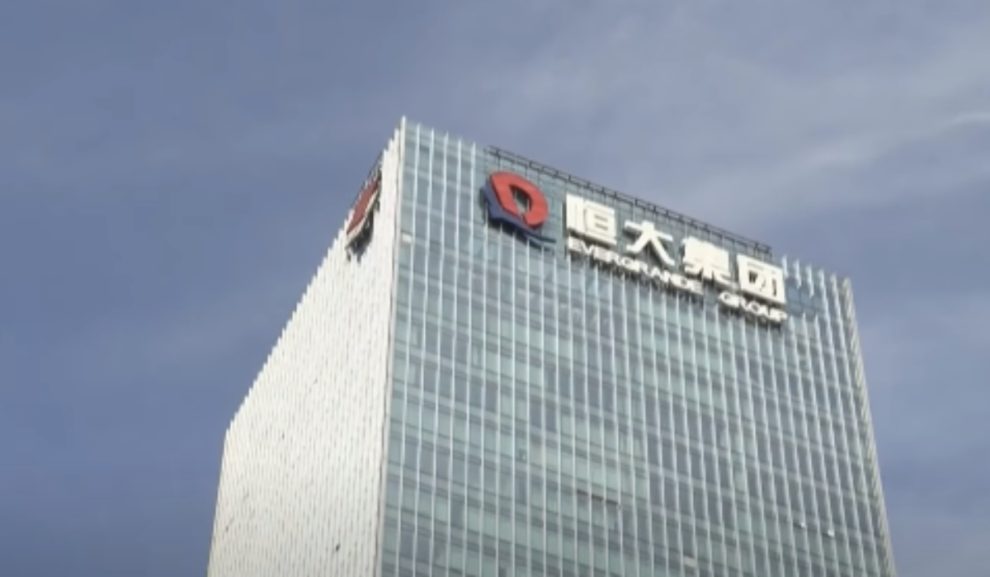A Hong Kong court on Monday ordered the liquidation of China’s property giant Evergrande, but the firm said it would continue to operate in a case that has become a symbol of the nation’s deepening economic woes.
Once China’s biggest real estate firm, its astronomical debt of more than $300 billion had become emblematic of a years-long crisis in the country’s property market that had reverberated throughout the world’s second-largest economy.
The order kickstarts a long process that should see Evergrande’s offshore assets liquidated and its management replaced, after the company failed to develop a working restructuring plan.
The company’s executive director vowed the Hong Kong court’s decision would not impact its operations domestically, while analysts said the ruling would further erode foreign investor confidence in China.
“(Given) the obvious lack of the progress on the part of the company in putting forward a viable restructuring proposal and the insolvency of the company… I consider that it is appropriate for the court to make a winding up order against the company and I so order,” High Court judge Linda Chan said.
In her written judgment issued Monday afternoon, Chan wrote creditors’ interests would be “better protected” if the company is wound up and independent liquidators can take over to secure assets and restructure as needed.
Edward Middleton and Tiffany Wong of law firm Alvarez & Marsal were appointed by Chan as liquidators.
The winding-up petition was filed in 2022 by creditor Top Shine Global, which wanted its money back after Evergrande formally defaulted in December 2021.
But analysts are sceptical any creditors will get repaid in full.
Ninety percent of Evergrande’s assets are in the mainland, according to Chan’s judgment.
“I doubt (Evergrande’s) offshore creditors would receive substantial recovery proceeds from the liquidation order,” Zerlina Zeng, a credit analyst at Creditsights Singapore LLC, told Bloomberg.
– ‘Stability of domestic business’ –
Evergrande’s executive director, Shawn Siu, called the decision “regrettable”, but vowed Monday the company’s operations in China would continue.
“The Group will still endeavour to do everything possible to safeguard the stability of its domestic business and operation,” he told a Chinese business outlet, adding that Evergrande’s Hong Kong arm was independent from its domestic subsidiary.
The company would “steadily push forward the key work of guaranteeing the delivery of buildings, maintain the quality of property services without being affected”, Siu added.
Shares in Evergrande plunged 20.87 percent to HK$0.16 in Hong Kong following the ruling, before the stock exchange halted trading in the morning.
Trading was also halted in Evergrande’s electric vehicle subsidiary.
Shanghai stocks fell close to one percent, but Hong Kong ended higher.
Evergrande’s demise has been closely watched as it was once a pillar of China’s economy, with the construction and property sectors once accounting for around a quarter of gross domestic product.
But President Xi Jinping deemed debt accrued by Evergrande and other property firms an unacceptable risk for China’s financial system and economic health.
Last year, Evergrande chair Xu Jiayin was “subject to mandatory measures” from authorities on suspicion of “crimes”.
Monday’s ruling, Chan wrote that a winding-up order had the “advantage” of taking control of the company away from Xu, removing a hurdle for restructuring.
– ‘Widely anticipated’ –
Officials have gradually tightened developers’ access to credit since 2020, and a wave of defaults has followed.
By the end of June, Evergrande estimated it had debts of $328 billion.
The impact of Monday’s decision on Evergrande’s construction activities in China are “unknown”, said Ken Cheung, chief Asian FX strategist at Mizuho, but the liquidation will likely remind investors of the sector’s ill-health and “may keep foreign investors away”.
While the winding-up was “widely anticipated”, the challenge will now be on “whether the liquidator will succeed in obtaining recognition… from mainland courts to seize” assets, Saxo Markets’ Redmond Wong.
Chinese “courts can refuse to recognise or assist Hong Kong liquidators”, Jonathan Leitch, a restructuring partner at law firm Hogan Lovells, told AFP.
And Shane Oliver, chief economist at Sydney-based financial services firm AMP, added: “Authorities will probably manage this liquidation in a way that doesn’t cause major contagion effects to other parts of the economy.”
But “it tells us that the property crisis is still far from being resolved, and remains an ongoing drag on the Chinese economy“.
